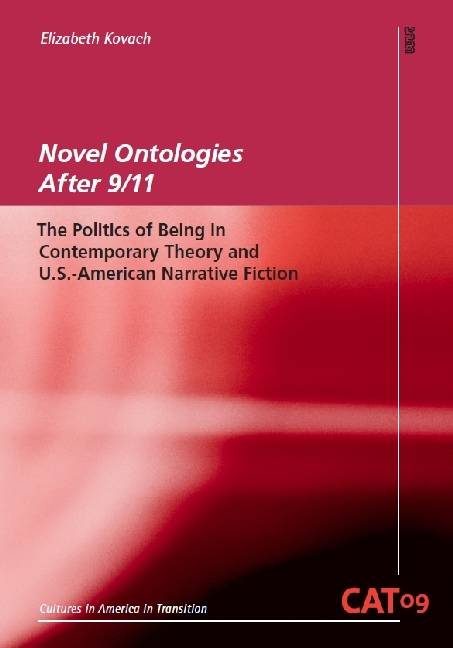
Je cadeautjes zeker op tijd in huis hebben voor de feestdagen? Kom langs in onze winkels en vind het perfecte geschenk!
- Afhalen na 1 uur in een winkel met voorraad
- Gratis thuislevering in België vanaf € 30
- Ruim aanbod met 7 miljoen producten
Je cadeautjes zeker op tijd in huis hebben voor de feestdagen? Kom langs in onze winkels en vind het perfecte geschenk!
- Afhalen na 1 uur in een winkel met voorraad
- Gratis thuislevering in België vanaf € 30
- Ruim aanbod met 7 miljoen producten
Zoeken
Novel Ontologies After 9/11
The Politics of Being in Contemporary Theory and U.S.-American Narrative Fiction
Elizabeth Kovach
€ 26,45
+ 52 punten
Omschrijving
Novel ontologies arise from states of concern. They are efforts to establish conceptual sites upon which a troubling status quo can be criticized, countered, and perhaps even redirected. This study focuses on U.S.-American novels that address specific socio-political developments of the post-9/11 era: a politics of fear that mobilized support for war in Iraq and Afghanistan, the global war on terror, the extending reach of neoliberal ideology and policy, and the augmenting of state surveillance and security apparatuses. The protagonists of these novels lament the seeming futility of resisting the status quo and hover in positions of stasis. Such story-level themes are accompanied by formal displays of ambivalence about how stories can and should be told. This prompts a striving for orientation in premises about being, existence, and becoming - for new ontologies. Such novels can be contextualized as part of a broader 'ontological turn' that has gained traction in contemporary theory across humanities disciplines in recent years. There is a resurgence of ontological questions in both contemporary theory and, as this work contends, this resurgence can also be traced in literary expression. This project illustrates the ways in which theoretical and literary discourses are engaged in implicit partnerships.
Specificaties
Betrokkenen
- Auteur(s):
- Uitgeverij:
Inhoud
- Aantal bladzijden:
- 218
- Taal:
- Engels
- Reeks:
- Reeksnummer:
- nr. 9
Eigenschappen
- Productcode (EAN):
- 9783868216929
- Uitvoering:
- Paperback
- Afmetingen:
- 195 mm x 225 mm
- Gewicht:
- 452 g

Alleen bij Standaard Boekhandel
+ 52 punten op je klantenkaart van Standaard Boekhandel
Beoordelingen
We publiceren alleen reviews die voldoen aan de voorwaarden voor reviews. Bekijk onze voorwaarden voor reviews.









